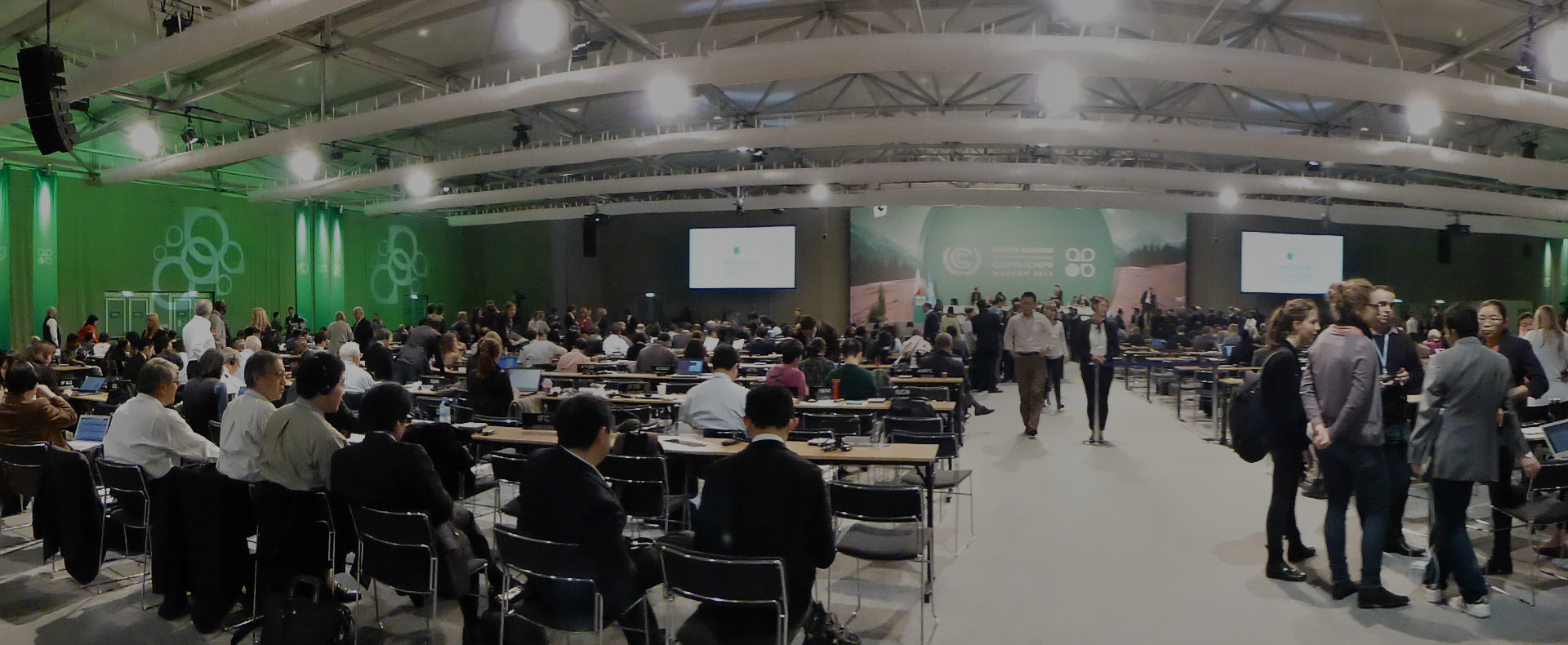Pro Bono: For Good, Not for Glory

Posted on 13 April 2017 by Jesse Medlong
Photo above: Country party flags outline the COP complex in Morocco.
For several years, DLA Piper has represented the country Georgia at UN climate talks, including at 2015’s COP 21 climate summit in Paris, which resulted in the history-making Paris Agreement. In November 2016, we continued that representation in Marrakesh, Morocco, the fifth time we have provided such support. Thanks in part to the efforts of our volunteer lawyers during that summit, both on the ground in Marrakesh and at our offices around the world, Georgia’s small delegation was able to operate more like one of the larger delegations from wealthy country participants. DLA Piper’s help meant the difference between attending most negotiating sessions (of which there are many) and missing most. This work has proved vital to pursuing Georgia’s interests in the context of international climate diplomacy.
But unlike Paris, the 2016 Conference of the Parties to the United Nations Framework Convention on Climate Change (the “COP”) ended with far less celebratory pomp, even coming as it did only days after the Paris Agreement entered into legal force. Fewer backs were patted. Fewer champagne glasses were raised. Nevertheless, the work was important. And that kind of experience offers a lesson for lawyers who take seriously their professional and ethical obligation to perform pro bono.
While historic advances like the Paris Agreement may capture our imaginations, the bulk of pro bono occurs behind the scenes. Four years of difficult and contentious work went into crafting the Paris Agreement, and many years more remain in implementing it. And that is sometimes just the reality of legal work generally. Pro bono is no different; if anything, this is especially the case for pro bono. Often, that work leads to momentous victories or stunning feel-good outcomes. But more often our pro bono work aims to achieve basic necessity for our clients, to hold the line, to deliver even minimal justice, to keep (as they say) the wolf from the door.
Whether we are assisting small business owners who can’t afford representation to incorporate their business in New York, or helping veterans apply for VA disability benefits, or helping rural residents with estate planning, much of pro bono is a tough slog with little immediate payoff, and even less glory. Consider this: More than half of DLA Piper’s pro bono work is transactional. The images in our minds of exonerating the wrongly convicted, of defending an indigent defendant or appellant, of righting a miscarriage of justice—even of negotiating international treaties—account for less than half of our pro bono work. And yet, this workaday pro bono is every bit as vital as its more exhilarating cousin in the courtroom.
Reflecting on these ideas in light of the 2016 COP in Marrakesh, I’m reminded of Egypt’s Great Pyramid. No one goes to Giza and stands slack jawed at the individual stones that constitute its massive structure. But each of those 2.3 million blocks weighs over three tons and represents the work of tens of thousands of laborers who cut, moved, and placed them. I think of our pro bono efforts like these blocks. They can be the products of great toil, heartache, perhaps even entire lifetimes. We may find them unremarkable on their own. Yet if we step back and consider these pieces together, maybe we can see that we’ve created something monumental after all.
And that is how the 2016 COP in Marrakesh was. The negotiations were fraught, and the payoff difficult to ascertain. But there were reasons for optimism. Part of the difficulty surrounding these negotiations was, in fact, the Paris Agreement’s unprecedented success from entering into force far earlier than expected. The goals of this year’s conference were to better understand the issues surrounding the implementation of the Paris Agreement and to adopt concrete plans to reach more final decisions by 2018, which is when the Parties had actually planned for the Agreement to enter into force. And despite some political uncertainty around climate change policy in the coming years, negotiations continued in good faith. Ultimately, the diplomatic work being carried out in these negotiations will forge a sustainable future for generations to come. That matters, even when progress is slow or difficult to discern, and when no parade greets the participants when they return home.
I am ultimately quite hopeful about the promise of climate diplomacy—and about DLA Piper’s contribution to those efforts. And I am thrilled for our continued work on this worthy project. Yet we should take this opportunity to recall that we do pro bono not out of a desire to be lauded for our efforts, but out of a hope that we will make a difference, however small, on real people with real stories. We do pro bono for the good it does for our clients and our communities. The glory, when it comes, is just a happy incidental.
Assisting Georgia with Climate
Change Negotiations
